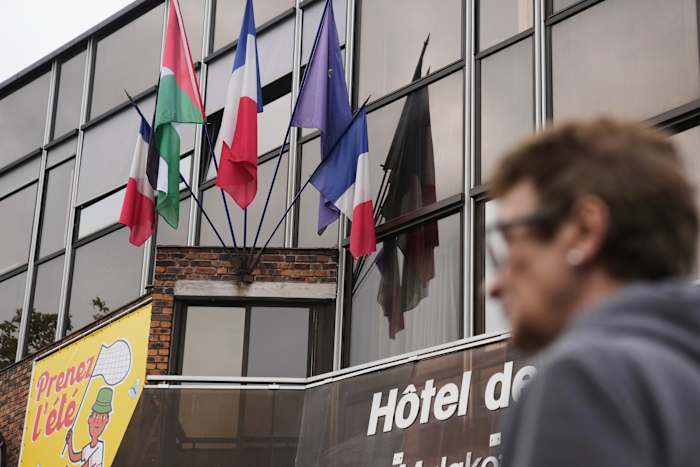Is Canada Joining the Global Movement to Recognize a Palestinian State?

Published: 2025-09-21 13:41:02 | Category: World-Economy
Canada has officially recognised a Palestinian state, a significant step amidst ongoing conflict in Gaza and rising calls for peace based on a two-state solution. Prime Minister Mark Carney announced this decision on social media, joining Britain and Australia in making similar declarations, despite pushback from the United States.
Last updated: 09 October 2023 (BST)
Key Takeaways
- Canada, Britain, and Australia have recognised a Palestinian state amidst ongoing tensions.
- More than 145 countries already acknowledge Palestinian statehood.
- The move has drawn criticism from Israel and the United States.
- Pressure for recognition has increased following statements from French President Emmanuel Macron.
- The humanitarian crisis in Gaza continues to escalate, affecting millions.
Background and Context of Recognition
The recognition of a Palestinian state by Canada, Britain, and Australia marks a pivotal moment in international relations, particularly in the context of the ongoing Israeli-Palestinian conflict. Prime Minister Mark Carney's announcement comes at a time when many nations are reassessing their positions regarding the Palestinian territories, especially in light of the humanitarian crisis unfolding in Gaza.
Historically, Canada has supported the concept of an independent Palestinian state alongside Israel. However, this recognition has typically been predicated on the advancement of a negotiated two-state solution. Carney's recent comments indicate a shift towards a more proactive stance, aiming to ensure that the viability of a two-state solution is not undermined by ongoing violence and settlement expansion.
The Global Response
The recognition by these Western nations is set against a backdrop of escalating tensions. The United States, under President Donald Trump, has expressed strong opposition to this recognition, suggesting that it could complicate future trade agreements and diplomatic relations with Canada. This sentiment reflects a broader concern among U.S. officials that such recognitions may embolden groups like Hamas, which has been at the centre of recent escalations in violence.
Interestingly, the recognition trend is not isolated to Canada, Britain, and Australia. More than 145 countries have already recognised Palestinian statehood, indicating a significant shift in global attitudes, particularly among nations in Europe and the Global South. The upcoming U.N. General Assembly is expected to see further declarations of support for Palestinian statehood, with France leading the charge following Macron’s earlier announcement.
Humanitarian Crisis in Gaza
The humanitarian situation in Gaza is dire, with over 65,100 fatalities reported according to the territory’s Health Ministry. The ongoing Israeli bombardment has decimated infrastructure, leading to widespread displacement—around 90% of Gaza's population has been affected. The crisis has grown so severe that experts warn of impending famine conditions in Gaza City, highlighting the urgent need for international intervention and support.
As the humanitarian crisis deepens, the call for recognition of Palestinian statehood becomes more pressing. Advocates argue that formal recognition could lay the groundwork for renewed peace talks and humanitarian aid, potentially alleviating the suffering of millions in the region.
The Political Landscape
Israeli Prime Minister Benjamin Netanyahu's government has staunchly rejected the notion of a two-state solution, complicating efforts for peace. The Israeli administration views the recognition of a Palestinian state as potentially destabilising and dangerous, particularly in light of recent attacks and ongoing military operations in the region.
The split in international recognition reflects broader geopolitical divides. While some Western powers are increasingly supportive of Palestinian statehood, others maintain a strong alliance with Israel, complicating diplomatic efforts. The differing stances on this issue highlight the complexities of international relations as nations navigate their positions amid a rapidly changing political landscape.
What Happens Next?
As the U.N. General Assembly convenes, the international community will be watching closely to see how this recognition impacts diplomatic relations and peace efforts. Countries that have recently recognised Palestine may push for further discussions on the two-state solution, while opponents might ramp up their efforts to counteract these moves.
In the coming weeks, the implications of this recognition could unfold in various ways, including increased pressure on Israel to engage in serious negotiations and a potential shift in U.S. foreign policy under the incoming administration.
Conclusion
The recognition of a Palestinian state by Canada, Britain, and Australia is a landmark development in the pursuit of peace in the Middle East. With the world watching, the hope is that this decision will foster dialogue and lead to a sustainable resolution to the conflict that has lasted for decades. As the humanitarian crisis in Gaza deepens, the urgency for a two-state solution is more critical than ever. Can the international community find a path forward amidst these challenges?
#PalestinianStatehood #PeaceProcess #GazaCrisis
FAQs
What does the recognition of a Palestinian state entail?
Recognition of a Palestinian state means that a country acknowledges Palestine as a sovereign entity, which can impact diplomatic relations and international law. It is often seen as a step towards establishing a framework for peace negotiations.
How many countries recognise Palestine?
Over 145 countries currently recognise Palestine as a state, with many in Europe and the Global South supporting this status amidst ongoing conflicts in the region.
What is the two-state solution?
The two-state solution is a proposed framework for peace in the Israeli-Palestinian conflict, envisioning an independent Palestinian state alongside Israel, with both nations coexisting peacefully.
How has the U.S. reacted to the recognition of Palestine?
The United States has expressed strong opposition to the recognition of Palestine by Western nations, arguing that it could hinder diplomatic efforts and embolden extremist groups.
What are the humanitarian conditions in Gaza?
The humanitarian conditions in Gaza are critical, with significant loss of life, widespread displacement, and reports of impending famine due to ongoing conflict and blockade.



